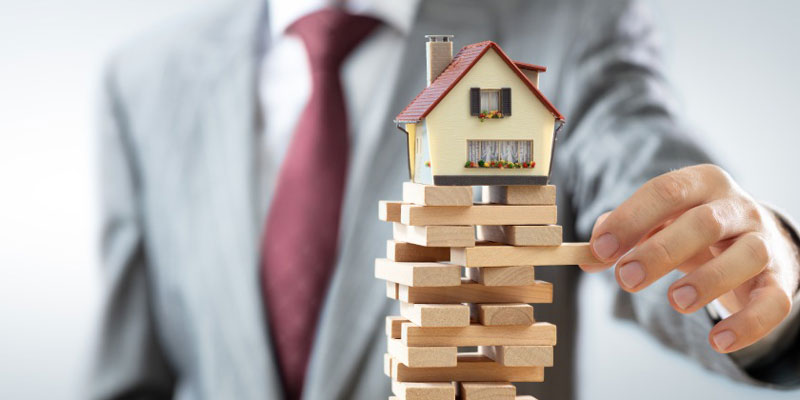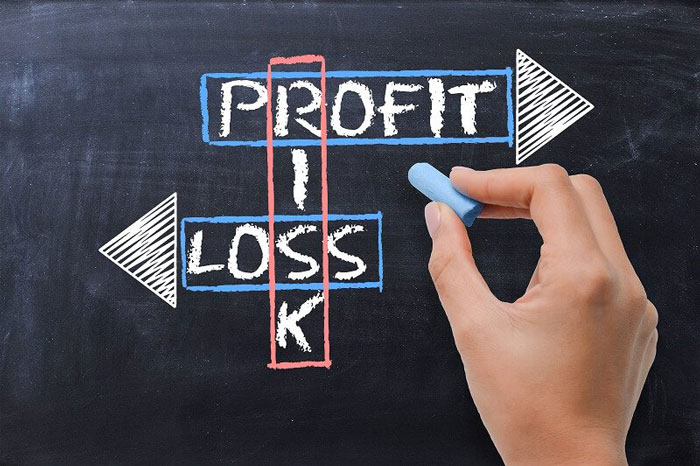
Is it dangerous to possess one's own real estate as an investment? According to Gallup's annual poll on the economy and personal finances, throughout the last decade, most American adults (35 percent) have chosen real estate as their primary investment vehicle of choice. Although it's often considered one of the most lucrative investment options, should you put your money into real estate? Property owners risk losing money, just as they do with any other investment when they put their money into real estate. When contemplating the purchase of an investment property, it is important to be aware of the potential dangers associated with real estate investing.
1. The Real Estate Market Is Sometimes Difficult to Predict
The real estate market has shown to be durable during the COVID19 epidemic, and in many regions, it has reached all-time highs. However, in the years preceding up to the Great Recession of 2008, many investors had the mistaken belief that the real estate market could only go in one direction: upward. The fundamental belief was that if you purchased a piece of real estate right now, you would be able to resell it at a much higher price in the future.
2. Making a Poor Choice Regarding the Location
When purchasing an investment property, the location is always and should always be the very first priority. After all, a home can't be relocated to a more attractive location, and a retail establishment can't be moved out of an abandoned strip mall where it had stood. The demand for rental properties, the sorts of properties that are in the greatest demand, the tenant pool, rental rates, and the potential risks for appreciation are all aspects that are ultimately driven by location.
3. Cash Outflows That Are in the Red
When discussing an investment in real estate, the term "cash flows" refers to the sum of money available for use after all costs, such as the mortgage, taxes, and insurance, have been deducted. When the amount of money coming in is less than the amount of money going out, this results in negative cash flows, which means that you are losing money. Among the most prevalent causes of negative cash flows are the following:
- High percentages of vacant housing
- The upkeep is too expensive.
- High-interest rates and fees associated with loans
- Not charging a sufficient amount for rent.
- Not using the most effective method of renting.
Doing your research before making a purchase is the most effective approach to lower the likelihood of experiencing a negative cash flow. Take the time (and make an effort) to calculate your projected income and costs as exactly as possible (and as realistically as possible), and do your research to ensure that the property is located in a desirable area.

4. Excessively High Rates of Vacancy
Suppose you want to create money from renting out your property, whether a single-family home or an office complex, you need to fill the available units with renters. When it comes to investing in real estate, one must be aware of the unfortunate reality that there is always the possibility of a high vacancy rate. If you rely on rental revenue to cover the mortgage, insurance, property taxes, and maintenance costs for the property, then high vacancy rates provide a particularly high level of risk.
5. Problem Tenants
You want to make sure that your investment properties are always occupied by renters so that you can reduce the danger of vacancy. However, this raises the possibility of having renters that cause problems. It's possible that having a lousy renter may wind up costing you more money and causing you more hassle than not having any tenants at all. The following are examples of renters who often cause problems:
- Either don't pay when you're supposed to or don't pay at all (which might result in a drawn-out and expensive eviction procedure).
- Garbage the place up completely.
- Don't disclose maintenance concerns until it's too late Host additional housemates (human or animals)
- Ignore the duties that come with being a renter.
6. Hidden Structural Problems
If you underestimate the expenses of repairs and maintenance associated with an investment, you will almost certainly lose money. For an ordinary single-family dwelling, for instance, repairing the foundation may reach as high as $12,000, while the cost of repairing the siding could reach as high as $16,000. For commercial properties, the costs of repairing structural damage or conducting mould or asbestos removal cleanup may quickly run into the tens of thousands of dollars.
7. Insufficiency of Available Funds

If you own stocks, it is simple to liquidate your holdings and get the money you need or desire when you want it. That's not often how things work out with investments in real estate. If you need to offload your property fast, but there is a shortage of liquidity in the market, you may wind up selling it for less than the market value or even at a loss.



